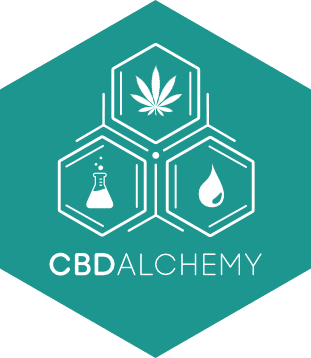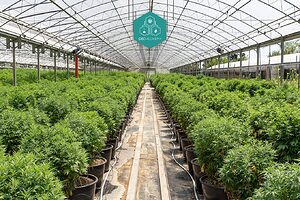Marijuana is the recreational use of marijuana, known for its psychoactive effects due to THC. In this article, we will also explore the role of CBD flowers in cannabis use, their health effects, and why they generate so much debate.
Key Points
- Marijuana use affects both physically and mentally, ranging from euphoria to mental health problems such as anxiety and paranoia.
- THC, the main psychoactive component of marijuana, can significantly alter the brain in the short and long term, affecting memory, learning and increasing the risk of dependence and psychiatric illness.
- There are several ways to consume marijuana, such as smoking and vaping, each with its own risks and benefits, and it is crucial to understand the long-term effects and legality for responsible use.
Marijuana: Use and Health Effects

Marijuana use is a widespread practice, becoming part of popular culture in many parts of the world. When we talk about the marijuana plant, we are referring to the dried leaves, flowers, stems and seeds of Cannabis sativa or Cannabis indica. It is important to remember that each part of the plant can have different uses and properties. The main psychoactive component of marijuana is THC (tetrahydrocannabinol), a substance that can cause changes in the mental state of the user.
The effects of marijuana are varied, affecting both the body and the mind of the user. From a feeling of euphoria and relaxation to possible mental health problems, the impacts are as diverse as the names given to this plant: from “weed” to “joint”. It is essential to understand its nature and how marijuana can influence different aspects of health.
The discussion of marijuana use is not without controversy. Throughout this article, we will explore:
- The complexities of its use
- The potential benefits
- The risks to consider
- Current regulations.
A thorough understanding of these details is essential for anyone interested in the subject, whether they are experienced smokers or simply curious to understand this facet of contemporary life.
Introduction
Marijuana has been both vilified and exalted in different cultures and historical moments. Today, it has become a focal point for a myriad of social, legal and health debates. But what do we really know about this plant and the substances derived from it?
The scientific name of marijuana barely scratches the surface of what this plant means to humans. The proportions in which it is consumed, the problems it can cause or solve, and the possibility of scientific study are aspects that have captured the attention of the world’s population. The term ‘marijuana’ generally refers to the recreational use of marijuana, and its relevance is booming due to its growing acceptance and the debate about its legalization and regulation.
The consequences of marijuana use are a subject of constant study. It affects both physically and mentally, and can have short- and long-term health repercussions. With names as varied as “weed”, “joint” or simply “grass”, marijuana has permeated all spheres of society, making its way into the daily lives of many people.
what is marijuana?
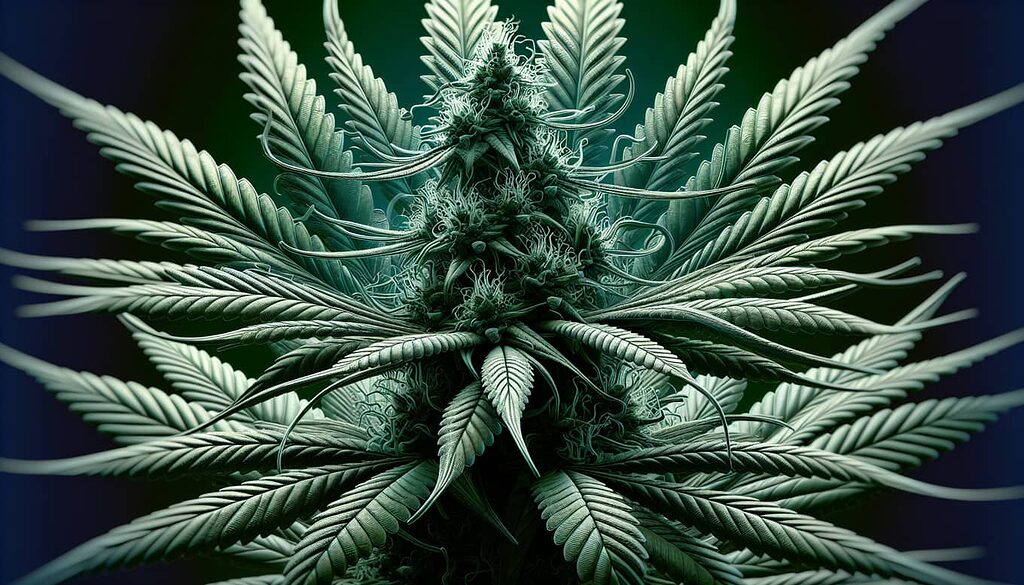
Marijuana, the colloquial term for cannabis when used for non-medical reasons, is one of the most widely used drugs in the United States, and its use among young people is a particular focus of attention. The marijuana plant contains THC, the substance responsible for the mind-altering psychoactive effects of marijuana.
Among the effects of marijuana are:
- Euphoria
- Relaxation
- Anxiety
- Paranoia
These effects may vary depending on the THC content of the marijuana variety. It is a plant that has been given many names: cannabis, weed, hashish, joint, pot, among others, which shows its penetration in popular culture.
Understanding what marijuana is and how it affects the body is the starting point to be able to talk properly about its use and the implications it entails. It is a substance that has been revered and demonized, but above all, it is a substance that deserves to be understood in all its complexity.
Forms of marijuana use

The consumption of marijuana can be done in many ways, each with its particularities and effects. Techniques for introducing this plant into the body vary from traditional smoke inhalation to more contemporary methods that seek to avoid the risks associated with smoking.
In the following sections, we will delve into two of the most popular forms of marijuana consumption: smoking and vaporizing. These methods not only differentiate smokers by preference, but also have distinct health impacts. For example, dabbing and tincture use are practices that have gained popularity for their ability to deliver THC in less harmful ways than traditional smoking.
Smoking marijuana
Smoking marijuana is undoubtedly the most well-known and widely used form throughout history. Joints are cigarettes made with rolling paper and a mixture of marijuana and tobacco, a combination that many find pleasurable. However, there are other variants such as blunts, which are cigars emptied of their original tobacco content and filled with marijuana.
Another method is water pipes, also known as bongs, which allow smoking both marijuana and hashish. These devices, along with bongs, have the particularity of cooling the smoke before it reaches the lungs, offering a different and, according to some, less irritating experience for the respiratory system.
Each of these methods of smoking marijuana has followers and detractors, and while some seek the purity of unmixed weed, others prefer the smoothness of a mixture with tobacco. What is certain is that, regardless of preference, the act of smoking marijuana is deeply rooted in certain cultures and social sectors.
Vaporizers
Vaporizers have gained traction as a modern alternative to marijuana consumption, offering a method that is perceived as less harmful than direct smoke from a cigarette. These devices heat marijuana to a temperature that releases its active compounds as vapor rather than smoke, reducing the inhalation of harmful substances.
These devices can use either dried herb or liquid concentrates, which are extracted from the leaves and stems of the marijuana plant using solvents. These liquid concentrates may include resin. In addition, some vaporizers are designed to collect vapor in a bag or storage unit, from which it is then inhaled.
Vaping, as it is commonly known, has gained a foothold among smokers looking for a cleaner way to consume marijuana, whether for health or simply for preference. In addition, the variety of vaporizers available on the market allows users to choose the one that best suits their needs and tastes.
CBD flowers
While marijuana is usually associated with THC and its psychoactive effects, there is another side of the marijuana plant that has gained popularity: CBD flowers. These flowers come from cannabis sativa plants and are highly prized for their therapeutic benefits, such as anxiety and stress relief.
CBD Alchemy, for example, offers premium indoor CBD flowers that represent the best of hemp. These flowers comply with strict regulations to ensure that they are 100% legal and safe for consumption. In addition, they can be smoked using rolling papers, pipes or vaporizers specifically for dry herbs, making them accessible to those who are already familiar with marijuana consumption but are looking for different effects and without the ‘high’ caused by THC, also known as delta 9 tetrahydrocannabinol.
Edibles
Cannabis edibles offer a completely different way to consume marijuana. They are available in a wide variety of forms, including cakes, cookies and gummy bears, making them appealing to a wider audience. In addition, marijuana oil can be used for cooking and baking or mixed with foods and beverages to create edibles.
A popular use of marijuana oil is to add it to beverages such as tea or coffee, allowing for a more discreet and controlled ingestion. There is also the option of preparing infusions with marijuana, a form of consumption reminiscent of a soothing herbal tea.
CBD Alchemy offers a variety of hemp-based foods selected for their high quality and nutritional richness, suitable for both adults and children. These products include delicious breakfast options rich in protein, vitamins, minerals and antioxidants, as well as tasty seeds to garnish soups, yogurts, salads or desserts.
Effects of marijuana on the brain
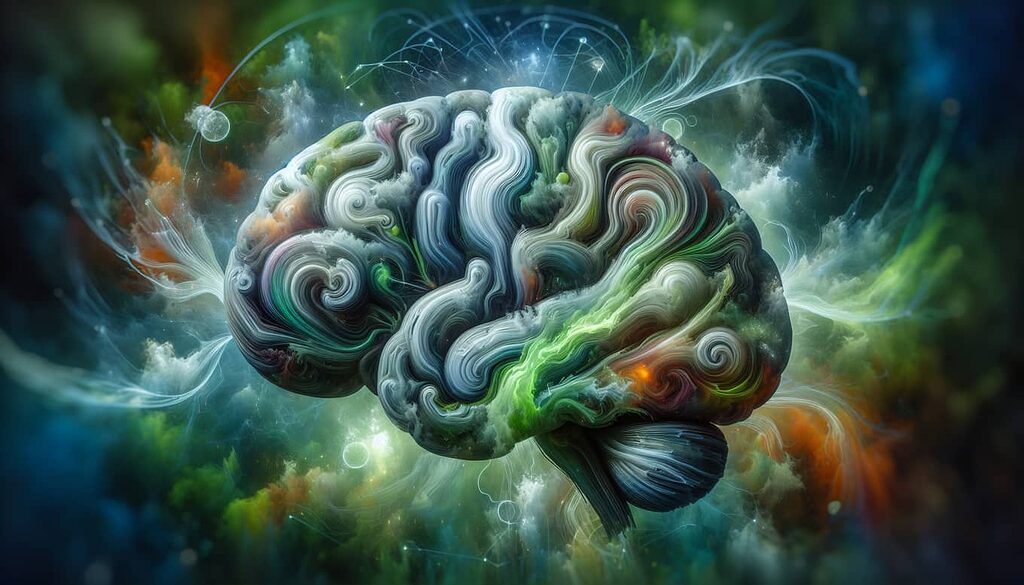
The THC contained in marijuana affects the brain significantly. Studies show that the THC content in marijuana has been increasing in recent decades, which means that today’s users are exposed to higher doses than in the past, increasing the potential for dependence and long-term effects. This compound stimulates the release of dopamine in the brain, which may contribute to its addictive potential and alter the brain in both the short and long term.
The effects of marijuana on the brain can include memory loss and decreased learning ability, which is of particular concern in adolescents, as it can cause a reduction in thinking ability and cognitive functions.
Below, we will explore the short-term and long-term effects of marijuana use on the brain in more detail.
Short-term effects
Marijuana can have an immediate impact on the brain after use. When consumed, THC triggers the release of dopamine, causing the well-known ‘high’ or feeling of euphoria. In addition, this compound acts on certain areas of the brain that influence sensory perception and mood alteration, which can lead to changes in the perception of time and space.
However, not all short-term effects are pleasurable. In some cases, marijuana use can result in a distorted perception of reality, which may be disturbing to the user. These effects vary from person to person and depend on the amount consumed, frequency and individual sensitivity to THC.
It is important to emphasize that while some immediate effects may seem benign or even desirable to certain users, they should not be taken lightly. Each individual’s experience can vary widely, and what may be relaxing for some may trigger anxiety and discomfort for others.
Long-term effects
Marijuana not only has a momentary effect, but can also have long-lasting consequences on the brain. Continued marijuana use, especially since adolescence, can interfere with brain development, permanently affecting memory and cognitive ability. One study showed that those who began smoking marijuana significantly during adolescence and continued their use lost, on average, 8 IQ points between the ages of 13 and 38.
In addition, marijuana use has been associated with an increased incidence of psychiatric conditions, such as depression and psychosis. Even more alarming is that marijuana use can trigger psychosis and schizophrenia, especially in individuals who are already genetically predisposed to these illnesses.
The long-term effects of marijuana use are of particular concern, as they can translate into noticeable difficulties in a person’s daily functioning and quality of life. Some of these effects include:
- Increased lifetime risk of psychosis by more than fivefold
- Memory and learning difficulties
- Attention and concentration problems
- Decreased motivation and goal-setting ability
- Impaired academic and work performance
- Increased risk of traffic accidents
The possibility that marijuana use may have these long-term effects is a fact that cannot be ignored and requires serious attention by users and health professionals.
Risks and side effects of marijuana
Marijuana use is not without risks and side effects, some of which can have serious health consequences. These range from respiratory problems to psychiatric disorders, evidencing that marijuana can cause harm beyond the immediate and pleasurable effects that many seek.
In the following sections, we will address in more detail some of the risks associated with marijuana use, including respiratory problems, anxiety and paranoia, and the potential for addiction. This knowledge is vital to making informed decisions regarding marijuana use.
Respiratory problems
Marijuana use, especially when smoked, can cause inflammation and irritation in the lungs, which in turn can increase the risk of respiratory infections. In addition, regular and long-term use is associated with diseases such as chronic bronchitis and pulmonary emphysema, due to constant exposure to smoke and the toxins it contains.
Marijuana smoking has also been linked to the development of broncho-pulmonary diseases and certain types of cancer, including lung cancer. It is important to keep in mind that the bronchodilator effect of marijuana can favor the absorption of toxic substances, thus increasing the risks to the respiratory system.
These respiratory problems are a clear example of how marijuana use can have long-term negative health consequences, which is crucial to keep in mind when evaluating the pros and cons of its regular use.
Anxiety and paranoia
The dark side of marijuana use can include:
- Acute anxiety reactions and paranoia
- Intense anxiety and sensory disturbances that they find deeply unpleasant
- In isolated cases, high THC marijuana use can cause extreme symptoms, including a psychotic reaction that can be frightening to the person experiencing it.
Continued marijuana use is also linked to long-term emotional disturbances, such as anxiety and depression. These effects can be especially damaging to mental health, as they can interfere with personal relationships and quality of life.
Anxiety and paranoia are just some of the side effects that indicate that marijuana use is not as harmless as some believe. These symptoms can be warning signs that an individual is dealing with problematic marijuana use, and may need help managing their use.
Addiction
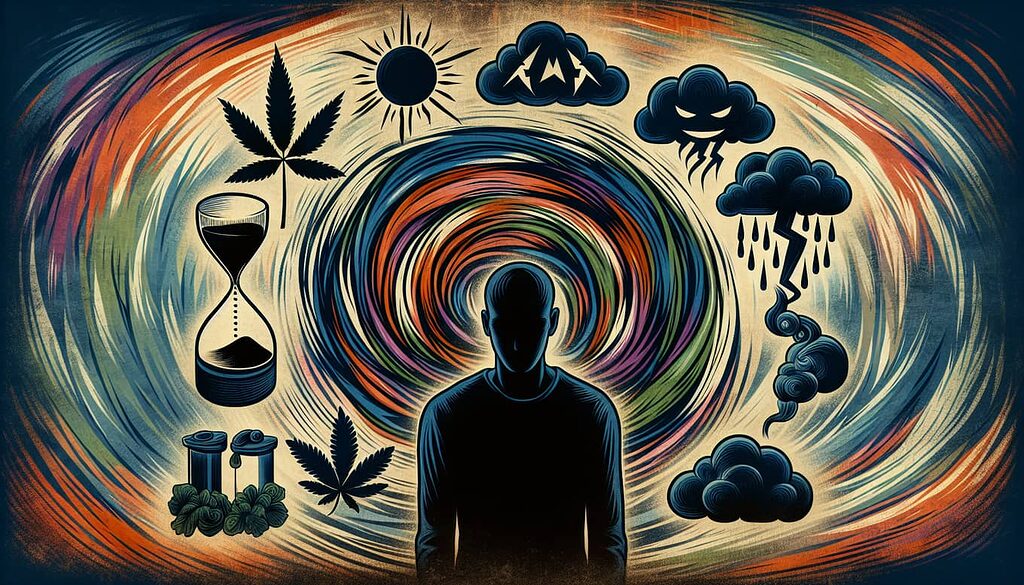
Marijuana use can develop into addiction. Approximately 7-10% of those who try it may develop addiction, and this percentage increases among frequent users, reaching 1 in 3. Symptoms of dependence may include:
- Loss of interest in activities that do not involve the use of the substance
- Withdrawal symptoms such as irritability, aggression, and sleep problems
- Impaired school or work performance
It is important to be aware of these symptoms and seek help if you are experiencing marijuana addiction.
Exposure to higher levels of THC, especially on a regular basis, increases the risk of developing addiction and can lead to the need to use other drugs, even overdose. It is important to note that the process of addiction is not a conscious choice, but a consequence of continued use that may require professional support for treatment.
Marijuana addiction is a serious condition that can have a considerable impact on a person’s life. Dependence on this drug is as real as that which can develop with substances such as alcohol or nicotine, and deserves to be treated with the same seriousness and dedication.
Marijuana and its impact on daily life
Habitual marijuana use can have a considerable impact on a person’s daily life, especially in areas such as school and work performance. Marijuana can cause:
- Decreased attention span
- Decreased concentration
- Decreased abstraction
- Decreased memory
This can translate into poorer academic performance and early school dropout.
In the workplace, marijuana use can lead to:
- Low productivity and performance problems
- Dependence symptoms such as irritability and aggressiveness
- Recurrent use as a way to alleviate symptoms
- Increased risk of workplace and traffic accidents, especially if combined with substances such as alcohol.
The impact of marijuana on daily life is multifaceted and can affect each individual in different ways. However, the risks of diminished academic and work performance as well as the dangers associated with driving under the influence of marijuana are aspects that everyone should consider before deciding to use this substance.
Marijuana Cessation Treatments
Quitting marijuana use can be challenging, especially for those who have developed dependence. Fortunately, there are treatments and supports that can help in this process. Talking to a psychologist or therapist and participating in individual or group therapy are effective strategies in the fight against addiction.
Behavior modification therapies, such as cognitive behavioral therapy, can help patients recognize and manage the factors that lead them to use marijuana. Contingency management and motivational stimulation therapy are other strategies that use positive reinforcement to promote abstinence. In addition, family therapy can be valuable in improving the home environment and reducing marijuana use.
For those who need more structured support, detox programs offer a space for therapy and support where they can prepare to participate in peer support groups. According to the National Institute on Drug Abuse, these treatments and strategies can be vital to achieving positive and lasting change in the lives of those who wish to stop using marijuana.
Legality of marijuana
The legality of marijuana varies widely by country and region. In the European Union, for example, there is no universal consensus on cannabis use, but the trend is toward reducing or eliminating prison sentences for possession of small amounts for personal use. Countries such as the Netherlands and Malta have implemented more permissive policies on marijuana possession and use.
Luxembourg and the Czech Republic are other examples of countries that have shown greater flexibility and are exploring or have already implemented the legalization of certain cannabis uses. In Switzerland, the use of cannabis products with a low THC content is permitted, and pilot programs have been established for their purchase under controlled conditions.
The legality of marijuana remains a controversial and constantly changing issue. It is important for consumers to be informed about the laws in their region to avoid penalties and to understand the legal framework within which they can consume marijuana.
Summary
We have explored the many aspects of marijuana use, from its forms of use to the effects it has on mental and physical health, as well as the treatments available for those who wish to quit. The complexity of this plant and its derivatives is undeniable, and its impact on the daily lives of those who use it can be profound.
We hope this article has provided a detailed and nuanced view of marijuana, allowing readers to make more informed decisions. Let’s remember that, regardless of one’s personal position on its use, knowledge is key to approaching this issue with responsibility and understanding.
Frequently Asked Questions
what are the benefits of CBD flowers from CBD Alchemy?
CBD flowers from CBD Alchemy offer therapeutic benefits such as relief from stress, anxiety, pain and improved sleep, without the psychoactive effects of THC.
can marijuana use cause addiction?
Yes, marijuana use can cause addiction, with an increased risk for frequent users. It is important to keep this risk in mind when considering the use of this substance.
is the use of marijuana legal throughout the European Union?
No, the legality of marijuana use varies from country to country in the European Union, but the trend is towards reduced penalties for possession of small amounts.
what treatments are available to stop marijuana use?
There are several treatments to stop marijuana use, such as cognitive-behavioral therapy, detoxification programs and support in mutual help groups. It is recommended to seek appropriate treatment based on individual needs.
can marijuana use affect school and work performance?
Yes, marijuana use can affect school and work performance by causing memory and attention problems. It is important to consider these effects when making decisions about marijuana use.
